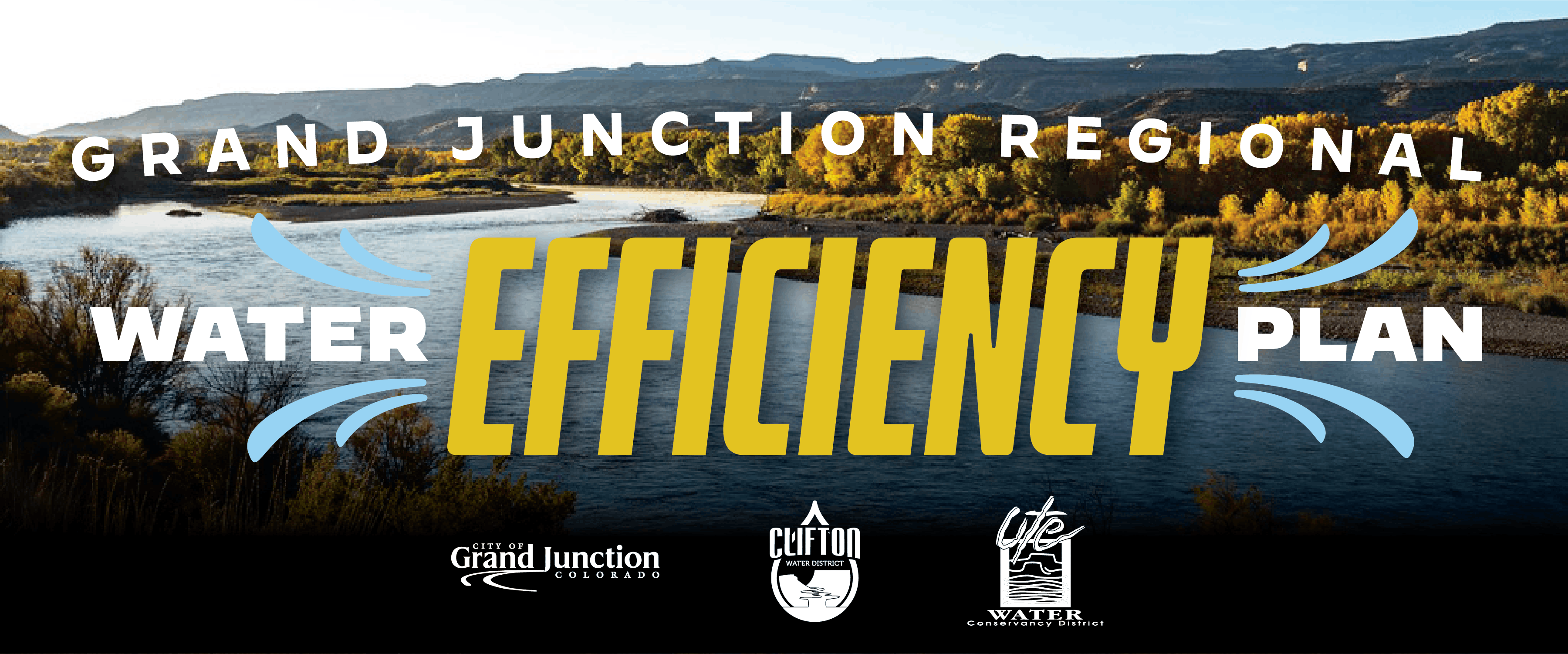Grand Junction Regional Water Efficiency Plan
The comment period for the Regional Water Efficiency Plan has closed. Thank you for your interest an be sure to check out our other projects.
What is the Water Efficiency Plan?
The City of Grand Junction in collaboration with the Ute Water Conservancy District and the Clifton Water District has developed a Regional Water Efficiency Plan (WEP). The purpose of the WEP is to help water utilities improve the overall water use efficiency by addressing issues of supply and demand and providing a defined method of solving problems and dealing with system inefficiencies. The WEP also provides both water utilities and the local communities with a means of using water resources wisely and prudently thus managing this precious exhaustible resource to its maximal responsible use. Community members are encouraged to review the plan and leave their questions regarding input on specific parts of the plan. In addition, an Ideas tab is located below to share ideas about the plan.
The WEP includes the following elements: profiles of existing water supply systems, historical water demands and demand forecasts, water efficiency goals, selection of water efficiency activities, and implementation and monitoring plans. Specific water conservation measures included in the WEP include reducing water system losses, replacing water fountains in schools with water bottle filling stations, toilet retrofits, audits of high-water users, implementing greywater systems, and turf replacement.
How can the community help?
This WEP is an update to the initial Water Conservation Plan adopted in 2012 and is intended to be broad and flexible so that it can be adapted to changing water conservation efforts over time. The goal of the regional WEP is to provide unified water education and community outreach programs that will aid the public in developing meaningful water conservation practices. City staff and our community partners want to hear your input on the WEP and other educational methods for sharing water conservation efforts with all residents. We have created interactive tools such as the questions tab, ideas, quick poll, and guestbook, to gain feedback from you!
The comment period for the Regional Water Efficiency Plan has closed. Thank you for your interest an be sure to check out our other projects.
Let us know if you have other questions within the WEP.



